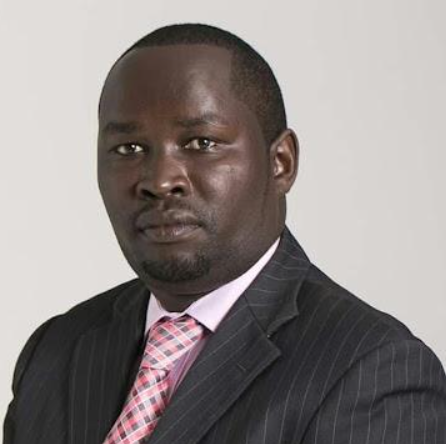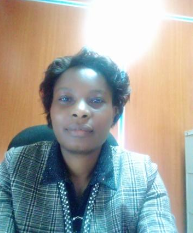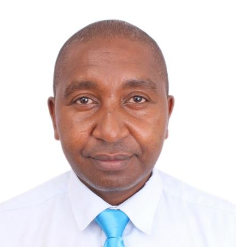Authors: Lawrence Thuo, Stephen K. Mbugua, and Bancy Ireri
The disposal of electronic waste (e-waste) has become a pressing issue in Kenya, presenting significant hazards to public health and the environment. To mitigate these risks, it is critical to raise public awareness and educate young people on how to sustainably manage e-waste.
Kenya has experienced a rapid increase in e-waste generation due to the growth of the technology sector and consumerism. Discarded electronics, such as mobile phones, computers, televisions, and other electronic devices, contain hazardous materials including lead, mercury, cadmium, and brominated flame retardants. Improper handling and disposal of e-waste lead to the release of these toxic substances into the environment, contaminating soil, water, and air. Improper management of e-waste poses significant health risks. Exposure to hazardous materials can result in respiratory problems, skin disorders, reproductive issues, long-term chronic diseases, and death. Additionally, the environment suffers from contamination of flora and fauna, impacting ecosystems, water bodies, and agricultural land.
Raising public awareness about e-waste is critical to drive behavioral change and promote responsible disposal. Educating young people is particularly vital, as they can be pivotal in driving sustainable practices and influencing their communities. Engaging youth in e-waste management initiatives fosters environmental stewardship, creates green jobs and employment opportunities, and promotes a sustainable circular economy which includes resource efficiency, refurbishment, repair, recycling, reverse engineering, and recovery of parts and components.
To address the e-waste challenge and promote awareness of this issue, since 2016, the E-Waste Initiative Kenya (a non-governmental organization) has developed a project targeting the regions of Mombasa, Kitui, Nakuru, Bungoma, Garissa, Lake Victoria, Kiambu, and Nairobi. This project engages local communities through workshops, seminars, and public campaigns to raise awareness about e-waste hazards, promote the circular economy, and emphasize the importance of safe disposal methods and recycling. Specialized training is provided for youth, focusing on e-waste management — including recycling techniques and entrepreneurship opportunities. This equips them with skills to pursue sustainable livelihoods while addressing the e-waste problem.
These efforts to overcome e-waste-related issues are continuing. Collection and recycling centers where individuals can properly dispose of their e-waste have been established, ensuring safe and environmentally friendly processing of e-waste materials.
In addition, e-waste hackathons have been organized to encourage youth to develop innovative ideas and approaches to tackle the e-waste problem.
The implementation of this ongoing project since 2016 has demonstrated several positive outcomes. Firstly, it has led to increased awareness and knowledge about e-waste management among the public, resulting in improved disposal practices. The project has reached out to 5,000 households in Mombassa, Kitui, Nakuru, Bungoma, Garissa, Lake Victoria, Kiambu and Nairobi regions. The project has seen over 10,000 youths being trained and equipped with knowledge of e-waste management. The program has also developed 20 e-waste collection points countrywide.
Secondly, by training and empowering the youth, the project has created a workforce skilled in e-waste management and recycling, driving sustainable development. Lastly, the establishment of collection and recycling centers has facilitated safe disposal and recycling, minimizing the environmental and health risks associated with e-waste.
The project is part of a global initiative advancing sustainable development through education — the Regional Centres of Expertise (RCEs) on Education for Sustainable Development. This global network is led by the United Nations University Institute for the Advanced Study of Sustainability (UNU-IAS), based in Tokyo, Japan. E-Waste Initiative Kenya was showcased in a publication and video produced by UNU-IAS this June. It highlights innovative education projects that have inspired local communities to adopt more sustainable and responsible consumption and production patterns.
The issue of e-waste in Kenya demands urgent attention to protect both public health and the environment. Raising awareness among the public and training youth in e-waste management are key strategies to combat this problem. Through implementing the E-Waste Initiative Kenya in the regions of Mombasa, Kitui, Nakuru, Bungoma, Garissa, Lake Victoria, Kiambu, and Nairobi, positive outcomes have been achieved, including improved awareness, responsible disposal practices, empowered youth, and a more sustainable approach to e-waste management. Building on this successful initiative, more collective efforts should be directed toward creating a cleaner, healthier, and more environmentally conscious Kenya.

Lawrence Thuo
Lawrence Thuo, an e-waste expert, trainer, businessman. The founder and Executive Director of E-Waste Initiative Kenya and E-waste Technical Academy, boasts 23 years in ICT and waste management. His career has been marked by pioneering e-waste management solutions, forging key partnerships, and advocating sustainability. With a strong academic background in electrical and electronics engineering, Lawrence is at the forefront of Kenya’s circular sustainability movement. His leadership sets new standards for responsible e-waste practices, shaping a greener future in Kenya and globally.

Bancy Wawira Ireri
Bancy is a professional with degrees in Biochemistry, Project Management, and Strategic Management. Her extensive career spans over 10 years in roles across public, private, and informal sectors, with a strong focus on achieving Sustainable Development Goals. Currently, she holds an administrative position at a public university in Kenya, where she continues to contribute to her field.

STEPHEN KAMUNGE MBUGUA
Stephen Kamunge Mbugua is a professional with a Master’s degree in Entrepreneurship and a Bachelor’s degree in Economics. With over a decade of experience, he is an accomplished senior researcher and startup trainer. Currently, he holds the position of Center Manager at E-wik Innovation Hub, where he plays a pivotal role in overseeing and managing operations related to innovation and entrepreneurship. Stephen’s wealth of expertise and experience positions him as a valuable asset in the realms of business and innovation.
